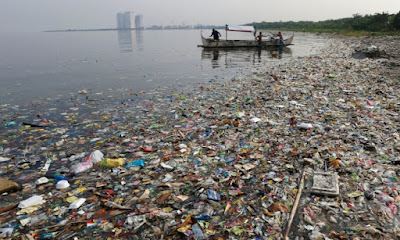Airmiles Strikes Again!
Greetings,
I've discovered another moment of genius from the people at Airmiles, they are now rolling out a mobile phone recycling scheme which allows consumers to receive airmiles in return for unwanted mobile phones, not only that but they have the gall to suggest that this scheme is 'environmentally friendly' because your phone is recycled or reused in line with the WEEE directive! This completely green washes over the fact that you will be collecting credits towards air travel through the scheme, completely undermining the benefits gained by recycling the phone in the first place.
Working from these figures, the average phone requires emission of 60kg of CO2 to be manufactured. Sending your phone to be recycled means that you offset a total of 35 miles of air travel (assuming you are travelling long haul) after which you will be contributing a minimum of 0.17Kg CO2 per mile. As most long haul flights are a minimum of 6.5 hours in duration, you could be travelling as far as 550 miles, thus contributing an additional 85Kg of CO2 to the atmosphere.
It always pays dividends to look at the detail in more depth and think about the true environmental benefit of such schemes; in this case there are plenty of businesses out there which recycle mobile phones without trying to bribe you with air travel.
Onwards & upwards!
Lucy.
I've discovered another moment of genius from the people at Airmiles, they are now rolling out a mobile phone recycling scheme which allows consumers to receive airmiles in return for unwanted mobile phones, not only that but they have the gall to suggest that this scheme is 'environmentally friendly' because your phone is recycled or reused in line with the WEEE directive! This completely green washes over the fact that you will be collecting credits towards air travel through the scheme, completely undermining the benefits gained by recycling the phone in the first place.
Working from these figures, the average phone requires emission of 60kg of CO2 to be manufactured. Sending your phone to be recycled means that you offset a total of 35 miles of air travel (assuming you are travelling long haul) after which you will be contributing a minimum of 0.17Kg CO2 per mile. As most long haul flights are a minimum of 6.5 hours in duration, you could be travelling as far as 550 miles, thus contributing an additional 85Kg of CO2 to the atmosphere.
It always pays dividends to look at the detail in more depth and think about the true environmental benefit of such schemes; in this case there are plenty of businesses out there which recycle mobile phones without trying to bribe you with air travel.
Onwards & upwards!
Lucy.

Hi Lucy,
ReplyDeleteThe Airmiles recycling website was developed in partnership with mobile phone recycling veterans ShP Limited. I was the development lead at ShP Limited, and as such I'd like to share my own experience working with Airmiles on this project. In the interest of full disclosure: I neither work for the Mileage Company nor am I authorised to comment on their behalf. What follows are wholly my personal observations based on my professional relationship with them.
First, I should mention that Airmiles do not directly profit from their mobile recycling site; rather, all profits from the scheme go straight into environmental projects such as sustainable power generation. This in itself is notable, but we were also surprised and gratified by the resources and enthusiasm that have been channelled into making this project a success. (And, for the record, we definitely consider it to be a success!)
The enthusiasm I mentioned earlier runs very deep. All of the Mileage Company staff I was involved with were not only committed, but actually excited by the work their company was doing to try and improve the environment. The mobile recycling scheme is not their only effort in this respect. For example, all of our work was done via teleconferencing to save commuting, and I often heard employees making car pool arrangements. They were very animated about their ongoing efforts to improve their own energy efficiency and reduce their carbon footprint.
In short, I know of few companies where the employees are quite so dedicated to green working ethics and practises. Nor are they unaware of the irony that their primary business is air travel or trying to disguise its impact on the environment. (They even mention it on their website.) My understanding is that they don't see this as a magical panacea for all of the atmospheric carbon released into the atmosphere by BA; rather, they see air travel as a vital service in an increasingly connected world that should be used responsibly and offset accordingly. They themselves are working hard to make their industry, or at least their corner of it, a little greener, and—at risk of sounding like a press release!—they strongly encourage their customers to follow suit. You can find out a little more about this in their own words on the recycling site, on the "Why recycle?" page—you'll need to register and log in first, though.
Thank you for offering the opportunity to comment. Again, I'd like to emphasise that I'm not undertaking to do so in a professional capacity (although I do take plenty of professional pride in my work!), but rather as someone whose involvement in the project lent them a rather different, and hopefully valuable, perspective.
(Oh, and just to round it off a little: I've never in my life travelled by airplane, and forego owning a car to enjoy a two-hour commute by bus!)